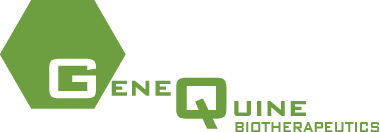预约演示
更新于:2025-05-07

GeneQuine Biotherapeutics GmbH
更新于:2025-05-07
概览
标签
皮肤和肌肉骨骼疾病
腺相关病毒基因治疗
基因疗法
疾病领域得分
一眼洞穿机构专注的疾病领域
暂无数据
技术平台
公司药物应用最多的技术
暂无数据
靶点
公司最常开发的靶点
暂无数据
| 排名前五的药物类型 | 数量 |
|---|---|
| 腺相关病毒基因治疗 | 2 |
| 基因疗法 | 1 |
| 排名前五的靶点 | 数量 |
|---|---|
| PRG4 | 1 |
| IL-1RA x PRG4 | 1 |
关联
3
项与 GeneQuine Biotherapeutics GmbH 相关的药物靶点 |
作用机制 PRG4调节剂 |
在研适应症 |
非在研适应症- |
最高研发阶段临床前 |
首次获批国家/地区- |
首次获批日期- |
靶点- |
作用机制- |
在研适应症 |
非在研适应症- |
最高研发阶段临床前 |
首次获批国家/地区- |
首次获批日期- |
作用机制 IL-1RA刺激剂 [+1] |
在研适应症 |
非在研适应症- |
最高研发阶段临床前 |
首次获批国家/地区- |
首次获批日期- |
100 项与 GeneQuine Biotherapeutics GmbH 相关的临床结果
登录后查看更多信息
0 项与 GeneQuine Biotherapeutics GmbH 相关的专利(医药)
登录后查看更多信息
1
项与 GeneQuine Biotherapeutics GmbH 相关的文献(医药)Frontiers in Medicine
Interleukins, growth factors, and transcription factors are key targets for gene therapy in osteoarthritis: A scoping review
Article
作者: Uebelhoer, Melanie ; Guse, Kilian ; Plutizki, Stanislav ; Lambert, Cécile ; Grisart, Juliane ; Henrotin, Yves
1
项与 GeneQuine Biotherapeutics GmbH 相关的新闻(医药)2021-01-26
Flagship Pioneering tapped into a variety of trendy R&D themes when it officially
debuted
Senda Biosciences a few months ago, most prominently its focus on the microbiome, computational biology and cellular interactions. And while it’s all still in its infancy, the founders clearly elicited some high-profile attention from a major player which straddles the line between food and medicine.
Nestlé Health Science has partnered
with Senda on one of its initial slate of R&D focuses, aligning itself with the biotech on metabolics, with a focus on some big targets, including obesity and glycemia.
According to Senda, they’ve generated the preclinical animal data needed to demonstrate that this new approach of theirs can spur weight loss and glucose clearing. Now Nestlé will help engineer a move into the clinical sphere with human studies.
Nestlé proved with its Aimmune
buyout
that it is willing to go big into biotech when it finds the right opportunity. But this new deal is being announced without a biobuck to its name — all terms are being kept on the qt.
But each retains ownership where it counts. Nestlé holds the global commercial rights to any nutritional product that can be developed, while Senda is keeping rights to any therapeutic that can be advanced. —
John Carroll
Longtime J&J vet and current Bayer business chief Marianne De Backer is joining a new board.
Kronos Bio announced Tuesday that De Backer has been
appointed
to the company’s board of directors. The move comes about three months after Kronos
went public
with an impressive $250.8 million IPO.
De Backer isn’t the only prominent name with Big Pharma experience at the company. 30-year Gilead R&D veteran Norbert Bischofberger has been running the show at Kronos since the company launched in 2018.
De Backer’s “significant experience in forging and managing strategic partnerships coupled with her broad business and commercial acumen and strong science background will be valuable as the company continues to grow,” Bischofberger said in a statement.
The biotech was making plenty of moves in recent months, having
acquired
entospletinib — which was shelved when Bischofberger still worked at Gilead — as well as another SYK inhibitor, lanraplenib. —
Max Gelman
A German biotech that’s been working on a new gene therapy approach aimed at turning “tissues or organs that need to be treated into factories for local production of therapeutic proteins” has raised a new round aimed at getting them into a human study.
GeneQuine Biotherapeutics GmbH grabbed
more than $10 million
— which includes a loan combined with investment cash — from a syndicate of investors intrigued by its platform tech, which relies on helper-dependent adenoviral — HDAd — vectors, to do the work.
Their lead program:
Pacira BioSciences led the raise, which included High-Tech Gründerfonds, Noshaq SA and Samum Vermögensverwaltungs GmbH. —
John Carroll
合作基因疗法IPO
100 项与 GeneQuine Biotherapeutics GmbH 相关的药物交易
登录后查看更多信息
100 项与 GeneQuine Biotherapeutics GmbH 相关的转化医学
登录后查看更多信息
组织架构
使用我们的机构树数据加速您的研究。
登录
或

管线布局
2026年02月28日管线快照
管线布局中药物为当前组织机构及其子机构作为药物机构进行统计,早期临床1期并入临床1期,临床1/2期并入临床2期,临床2/3期并入临床3期
临床前
3
登录后查看更多信息
药物交易
使用我们的药物交易数据加速您的研究。
登录
或

转化医学
使用我们的转化医学数据加速您的研究。
登录
或

营收
使用 Synapse 探索超过 36 万个组织的财务状况。
登录
或

科研基金(NIH)
访问超过 200 万项资助和基金信息,以提升您的研究之旅。
登录
或

投资
深入了解从初创企业到成熟企业的最新公司投资动态。
登录
或

融资
发掘融资趋势以验证和推进您的投资机会。
登录
或

生物医药百科问答
全新生物医药AI Agent 覆盖科研全链路,让突破性发现快人一步
立即开始免费试用!
智慧芽新药情报库是智慧芽专为生命科学人士构建的基于AI的创新药情报平台,助您全方位提升您的研发与决策效率。
立即开始数据试用!
智慧芽新药库数据也通过智慧芽数据服务平台,以API或者数据包形式对外开放,助您更加充分利用智慧芽新药情报信息。
生物序列数据库
生物药研发创新
免费使用
化学结构数据库
小分子化药研发创新
免费使用